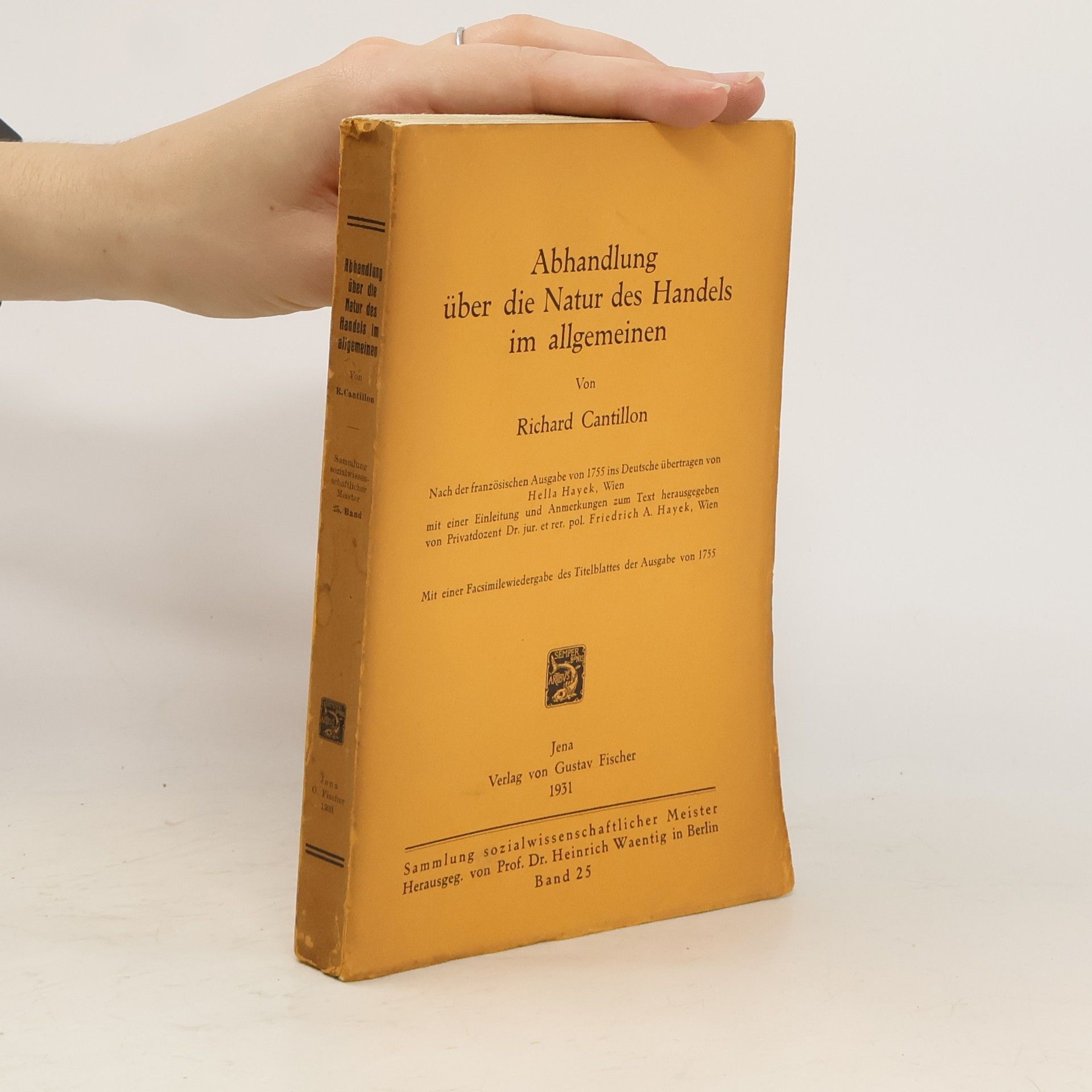Richard Cantillon's Essay on the Nature of Trade in General
A Variorum Edition
- 514 pages
- 18 hours of reading
Written by Richard Cantillon in the early 1730s, this influential work explores the foundations of trade and economics, reflecting the author's experiences as a successful banker and speculator during the financial bubbles of the early 18th century. Although it remained unpublished for nearly twenty years, its posthumous release in 1755 in Paris marked a significant contribution to economic thought, earning immediate recognition for its insights into market dynamics and the nature of trade.

